
(PDF) The Concept of Good Faith in Criminal Law
The good faith exception is one that is rooted in purity, meaning that everyone involved must be on his best behavior, or the exception will not be applied. If one officer lies about the facts within a search warrant to push the search forward, and another officer believes the warrant to be reasonable and unknowingly carries out the search, a.

Good Faith Agreement Templates 6+ Free Word, Excel & PDF Formats, Samples, Examples, Designs
Contract law. In contract law, the implied covenant of good faith and fair dealing is a general presumption that the parties to a contract will deal with each other honestly, fairly, and in good faith, so as to not destroy the right of the other party or parties to receive the benefits of the contract. It is implied in a number of contract.

Principle of Utmost Good Faith lecture on insurance law Principles of Insurance Contract
The implied covenant of good faith and fair dealing prevents parties from exercising discretion and performing their contractual obligations in bad faith and in a manner that denies the other party the benefit of its bargain. The covenant can provide judges with a legal basis to fill gaps that may exist in contracts, as well as to restrict.

GOOD FAITH concept stock illustration. Illustration of attitude 123107328
A Background on How to Negotiate in Good Faith. In U.S. contract law, the concept of good faith negotiation is rooted in the legal concept of "implied covenant of good faith and fair dealing," which arose in the mid-19 th century to protect parties from taking advantage of one another in contract negotiation. In 1933, the New York Court of Appeals ruled that every legal contract contains.

Good Faith in International Law
Good faith in legal terminology refers to the use of honesty and best efforts in dealings with others. For example, an insurance policy is considered a contract between you (the Insured) and your insurance carrier (the Insurer). This contract requires that your Insurer acts in "good faith" toward you. When an Insurer unreasonably withholds the.
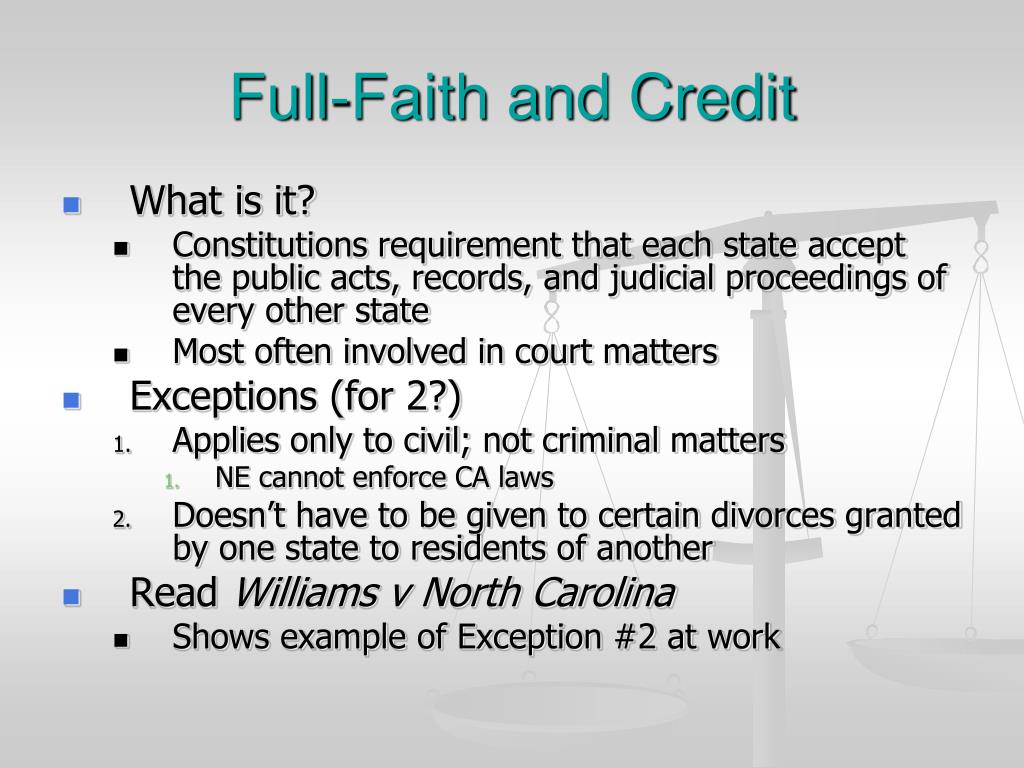
PPT Chapter 4 Federalism PowerPoint Presentation, free download ID1379926
What does "good faith" mean in legal documents? In the world of legal contracts and agreements, the term "good faith" is crucial. It refers to the honest and fair dealings between parties involved in a legal transaction. When you act in good faith, it means you are being truthful, transparent, and have the best intentions in mind..

Ritan Property Group Good Faith Agreement Fill and Sign Printable Template Online US Legal Forms
Good faith. In human interactions, good faith ( Latin: bona fidēs) is a sincere intention to be fair, open, and honest, regardless of the outcome of the interaction. Some Latin phrases have lost their literal meaning over centuries, but that is not the case with bona fides, which is still widely used and interchangeable with its generally.
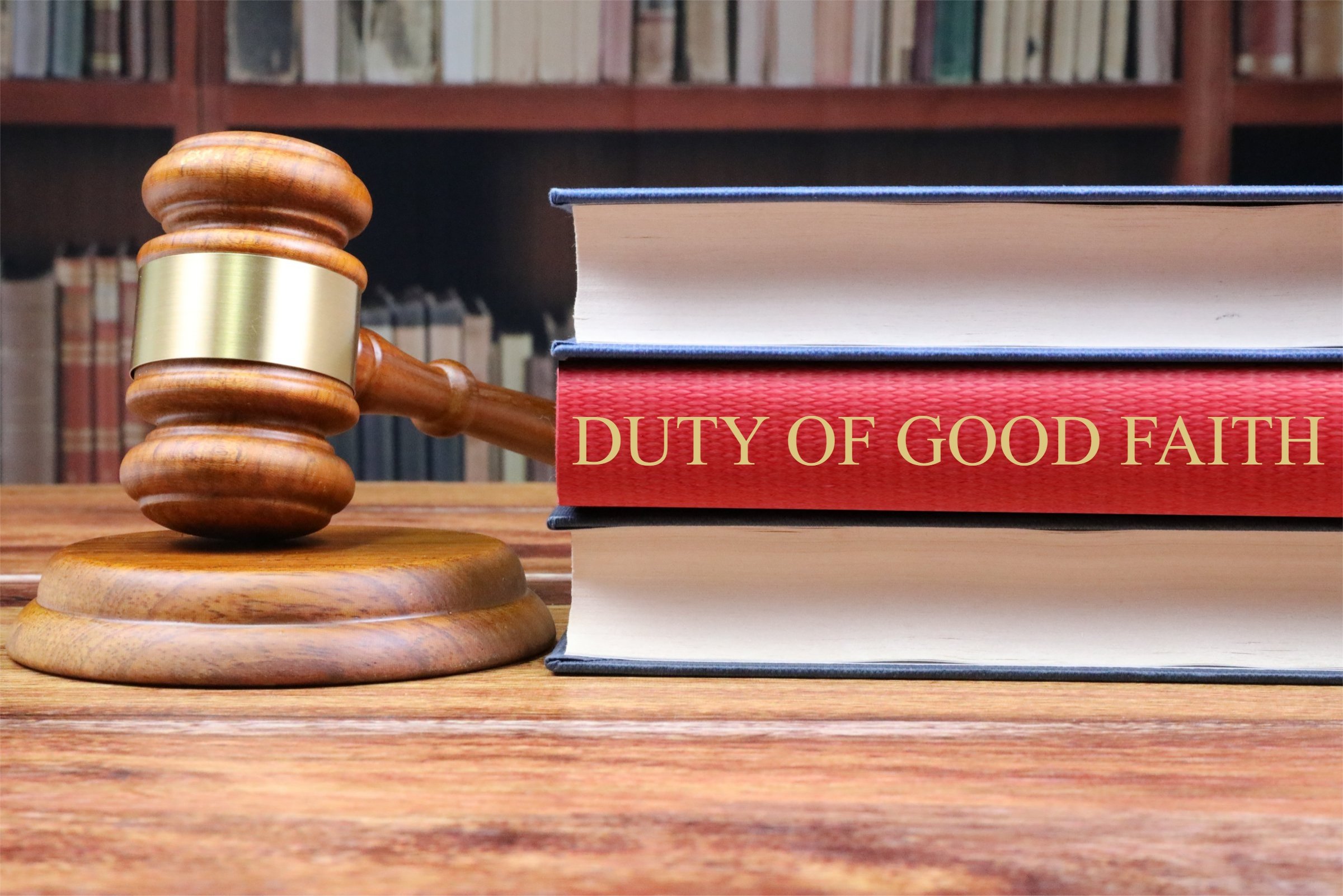
Free of Charge Creative Commons duty of good faith Image Legal 8
Definition. An act or omission is made in good faith if it is made with no intent to deceive or defraud, or if it results from a genuine misunderstanding about another person's intentions or legal rights. The related rules section is for members only and includes a compilation of all the rules of law in Quimbee's database relating to this key.

Profit with Honor MWDBE Good Faith Efforts
Definition of "good faith" A sincere intention to be fair, honest and lawful in one's actions or dealings, without any aim to deceive or cheat ; How to use "good faith" in a sentence. The buyer made the purchase in good faith, having no knowledge of the item's history.

Good faith
in good faith: adverb bona fide , constantly , fairly , faithfully , honestly , legitimately , steadily , truly Associated concepts: good faith effort, presented in.

Duty Of Good Faith Free of Charge Creative Commons Legal Engraved image
What does Good faith mean? An overarching concept for being open and honest in negotiations that goes beyond the idea of not deceiving the other party. There is no particular definition of 'good faith' in English law but it has been described as 'In many civil law systems, and perhaps in most legal systems out-side the common law world, the law.
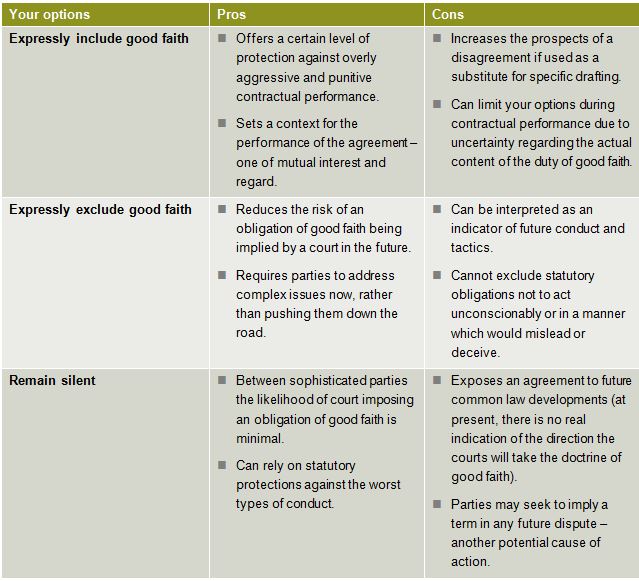
The doctrine of good faith the good the bad and the uncertain Contracts and Commercial Law
Legal Compliance: Acting in good faith ensures that you comply with legal obligations and avoid potential legal consequences. It demonstrates your commitment to ethical business practices and helps build a positive reputation. 2. Building Trust: Good faith is the foundation of trust in any business relationship.
/38731569831_b6e38a4dfd_k-3c60a2d574434011b5294fa88f8c59fd.jpg)
Doctrine Of Utmost Good Faith Definition
Good Faith. Honesty; a sincere intention to deal fairly with others. Good faith is an abstract and comprehensive term that encompasses a sincere belief or motive without any malice or the desire to defraud others. It derives from the translation of the Latin term bona fide, and courts use the two terms interchangeably.. The term good faith is used in many areas of the law but has special.
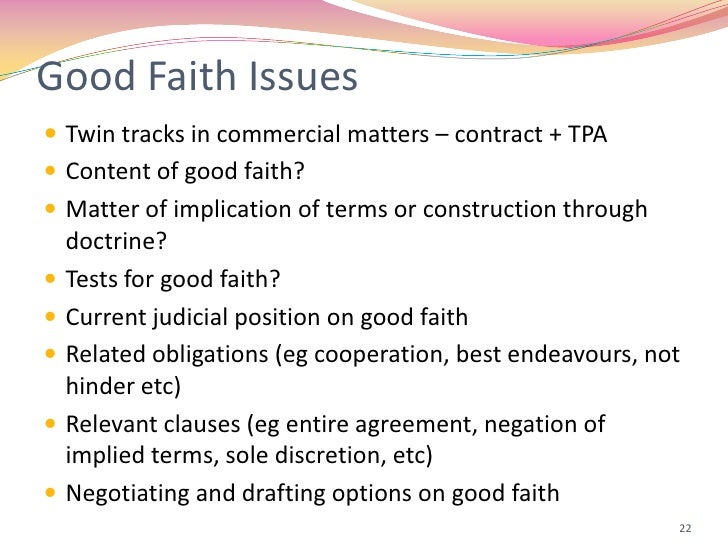
Unconscionable Conduct and Good Faith in Australian Law
n. honest intent to act without taking an unfair advantage over another person or to fulfill a promise to act, even when some legal technicality is not fulfilled. The term is applied to all kinds of transactions. implied covenant of good faith and fair dealing. n. a general assumption of the law of contracts, that people will act in good faith.
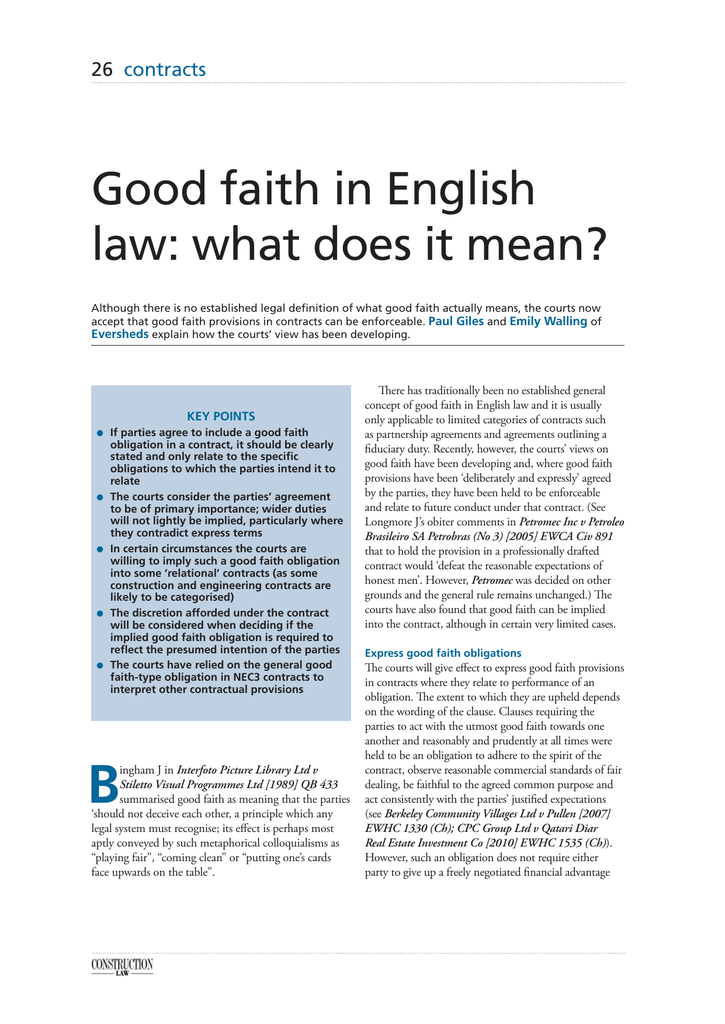
Good faith in English law what does it mean?
Good faith is a broad term that's used to encompass honest dealing. Depending on the exact setting, good faith may require an honest belief or purpose, faithful performance of duties, observance of fair dealing standards, or an absence of fraudulent intent. A fiduciary relationship creates a duty of good faith between the agent and the.
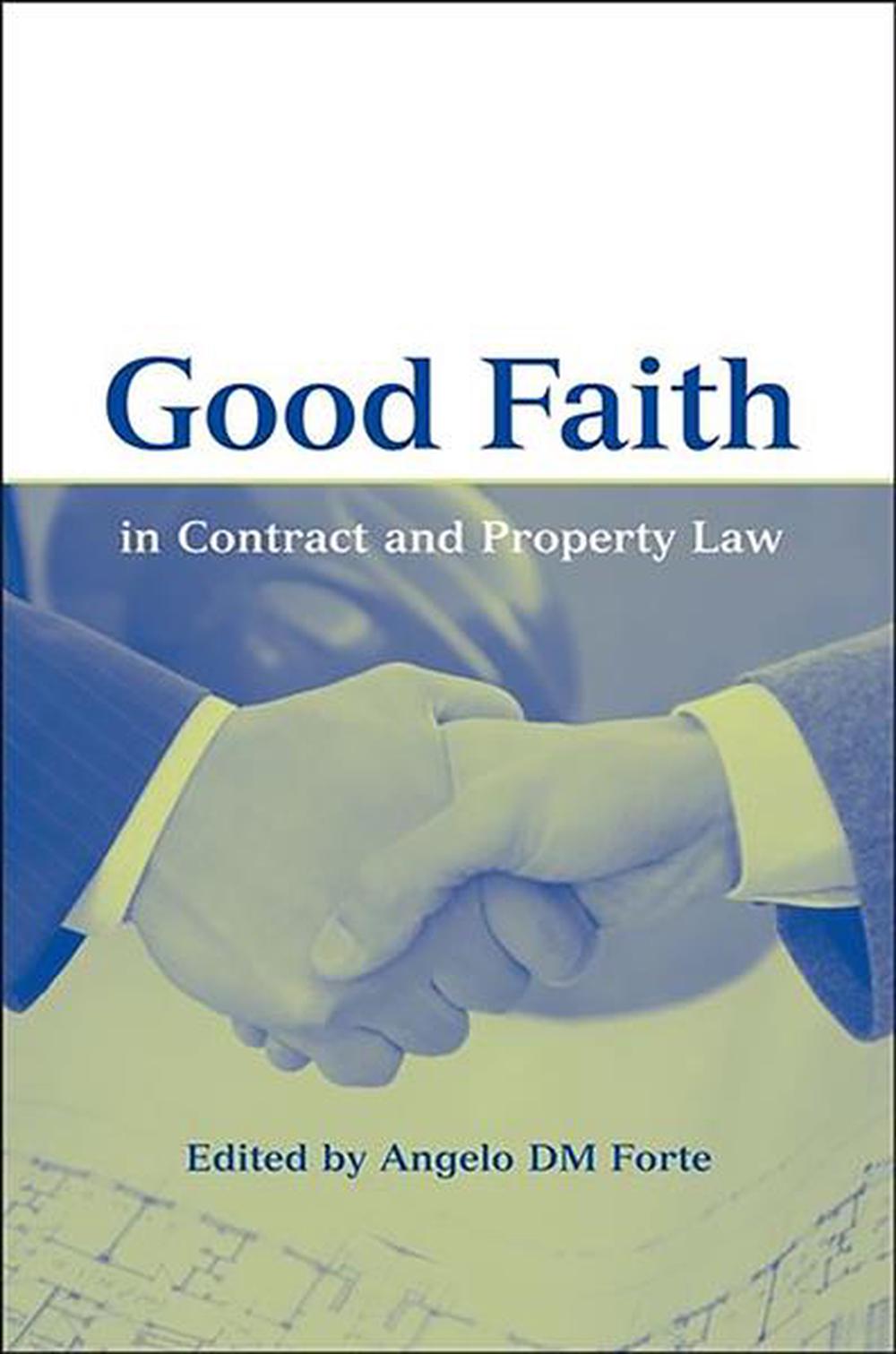
Good Faith in Contract an Property Law by Angelo D.m. Forte (English) Hardcover 9781841130477 eBay
The meaning of GOOD FAITH is honesty or lawfulness of purpose. How to use good faith in a sentence. honesty or lawfulness of purpose… See the full definition. The law also generally requires good faith of fiduciaries and agents acting on behalf of their principals. There is also a requirement under the National Labor Relations Act that.
- Office Home And Student 2021
- Similarities In Christianity And Judaism
- Map Of Airports In New Zealand
- Great Hall University Of Sydney
- Rural Land For Sale Yeppoon
- Glass Fishing Floats For Sale Australia
- Centrelink Pay Dates Christmas 2023
- World Cup Football Results Today
- How Many Episodes In Payback Season 1
- Why Does My Phone Vibrate Randomly
